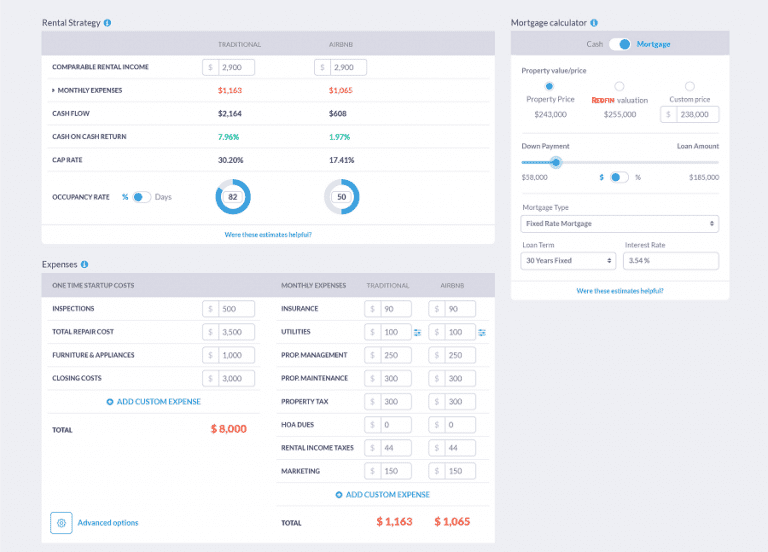On Sunday, March 15, 2020, the Federal Reserve announced a major cut in interest rates- the second Fed interest rate cut in just two weeks. In response to the coronavirus pandemic, the Fed announced that it would cut the federal funds rate by 1%. This latest cut results in a 0% interest rate (in the range of 0% to 0.25%).
The last time the US witnessed a 0% interest rate was in 2008 when the Federal Reserve took a similar action to combat the negative effects of the Great Recession on the US economy. Interest rates were held steady near these super-low rates until around 2015.
These latest interest rate cuts are intended to tackle the growing negative impact of COVID-19 on the US economy. With social distancing, the general negative coronavirus global economic impact, and more and more coronavirus cases popping up all over the US, experts are putting out pessimistic economic forecasts for Q2 of 2020. Based on the statement provided by the Federal Reserve upon its announcement of the cut, the hope is that the interest rate cut will drive economic activity:
In light of these developments, the Committee decided to lower the target range for the federal funds rate to 0 to 1/4 percent. The Committee expects to maintain this target range until it is confident that the economy has weathered recent events and is on track to achieve its maximum employment and price stability goals. This action will help support economic activity, strong labor market conditions, and inflation returning to the Committee’s symmetric 2 percent objective.
President Donald Trump showed support for the move by the Federal Reserve, saying that investors in various US financial markets “should be thrilled” with the Fed rate cut. However, following the announcement, the US stock market continued to take major hits on Monday:
- Dow Jones Industrial Average DJIA: -12.92%
- S&P 500 Index SPX: -11.98%
- Nasdaq COMP: -12.32%
But what about real estate investors and investment property mortgage rates? What does the 0% interest rate mean for mortgage rates as we move forward in 2020? How should the 0% interest rate impact your moves in the US housing market 2020?
Will Mortgage Rates Drop to 0% in 2020?
It’s not likely that US real estate investors and homebuyers will see a 0% mortgage rate in 2020 due to the 0% interest rate. Let’s take a look at why:
The Relationship Between Mortgage Rates and the Fed Interest Rate

The federal funds rate does not directly affect mortgage rates. This is because mortgage rates are impacted by long-term bond yields as opposed to short-term interest rates such as the federal funds rate. At the same time, however, the 10-year and 30-year Treasury notes, which do tend to affect mortgage rates, fell as a reaction to the emergency Fed rate cut.
And US real estate market trends reveal that when the Fed has cut rates in the past, mortgage rates followed suit. If we look back to just the end of 2019, we saw the Fed cut interest rates multiple times and mortgage rates continued to drop well into the beginning of 2020- reaching historic lows. Freddie Mac reported the following monthly averages for mortgage rates:
Monthly Average Mortgage Interest Rate on a 30-Year Fixed-Rate Mortgage
- December 2019: 3.72%
- January 2020: 3.62%
- February 2020: 3.47%
- Week of March 11, 2020: 3.36%
Monthly Average Mortgage Interest Rate on a 15-Year Fixed-Rate Mortgage
- December 2019: 3.18%
- January 2020: 3.07%
- February 2020: 2.97%
- Week of March 11, 2020: 2.77%
So, Why Won’t the 0% Interest Rate Lead to a 0% Mortgage Rate?
So if the cuts in the Fed interest rate do seem to lead to drops in mortgage rates, why won’t we see a 0% mortgage rate in 2020? There are three reasons essentially.
Reason #1: Consumers Represent a Higher Risk
Chief financial analyst of Bankrate, Greg Mcbride, shed some light on why the 0% interest rate is not likely to lead to a 0% mortgage rate:
Even the government can’t borrow at zero percent. The most creditworthy consumer carries a higher risk than the US Treasury, so you are going to pay at least a couple percentage points more than that.
Reason #2: Increased Demand Has Lead to WOW Rises in the Mortgage Rates
Because of the continuing drops at the beginning of 2020, the mortgage market actually saw an increase in applications, specifically those for home refinancing and from real estate investors interested in refinancing investment property. This is important to note as the increased demand in the mortgage market actually led to a week-over-week rise in mortgage rates on the 30-year fixed-rate mortgage:
- Week of February 26, 2020: 3.45%
- Week of March 4, 2020: 3.29% (historic low since 1971)
- Week of March 11, 2020: 3.36%
Reason #3: Historical Trends Tells Us That Won’t Happen
Although some are looking toward the 0% mortgage interest rate and negative interest rate that other countries are seeing, it’s not likely that the US housing market will witness the same anytime soon. For example, in Denmark, the negative interest rates were a result of the local central bank maintaining a 0% interest rate for years. And we can simply look at historical real estate market trends. From December 2008 to December 2015, when the 0% interest rate was held in the US, the median mortgage rate was 4.2%.
Mortgage Rate Forecast for 2020: Mortgage Interest Rate Drop Will Continue
Even with the recent jump in mortgage rates and the low possibility of a 0% mortgage rate or negative interest rates in the US housing market, rates are likely to keep dropping. Having reached historic lows already in March 2020, mortgage rate predictions place rates at an even lower value as we move forward in 2020. Danielle Hale, chief economist at Realtor.com weighed in:
With the Fed cutting rates to 0% and re-starting quantitative easing, including purchasing mortgage-backed securities, mortgage rates are poised to drop back down and may even hit new record lows…Mortgage rates will go lower. [And] that’s good news for buyers.
And as part of the decision to push for a 0% interest rate, the Federal Reserve also announced that it would purchase around $500 billion in U.S. Treasury bonds and $200 billion in government mortgage-backed securities in the next few months. According to Hale, this will lead to further drops in mortgage rates:
That should stabilize rates and bring them back down lower. They’ll [likely] go back to the low 3% [range]. Might we see rates below 3%? I wouldn’t rule it out.
What Should US Real Estate Investors Do Right Now?
In light of the 0% interest rate, should you rush into buying an investment property today? Or refinancing a rental property?
Because mortgage lenders and banks are facing an overwhelming amount of applications right now (which as mentioned, drove rates up), it’s best to wait for them to get a handle on the situation. Once they are all caught up, experts say that mortgage rates will drop even further in the coming weeks and that will be the time to start investing in real estate and jump on real estate investment opportunities.
So should US real estate investors simply be waiting around right now? Absolutely not. What you should be doing is searching for real estate deals in the US housing market. Mortgage rates will drop again soon and you don’t want to wait until that time to start your search.
The best way to quickly find and analyze investment properties for sale is by using real estate investment software like Mashvisor. Sign up now and find the best investment properties in a matter of minutes. The best part is that you can do this from the comfort of your home while keeping yourself, your family, and your community safe by minimizing the spread of the coronavirus.
Once you find a great investment property with Mashvisor, you can time your offer to take advantage of good mortgage interest rates and apply for investment property financing in the next few weeks. Be sure to use Mashvisor’s Airbnb calculator, along with its Airbnb data, to see how your investment loan and mortgage interest rate will impact the rate of return on your investment. With this real estate investment tool, you can enter the details of your investment property mortgage and see your cash on cash return. In addition to that, you’ll get property data on every listing such as:
- Cash Flow
- Rental Property Expenses
- Cap Rate
- Occupancy Rate
- Real Estate Comps (Sales and Rental Comps)
- Investment Payback Balance
